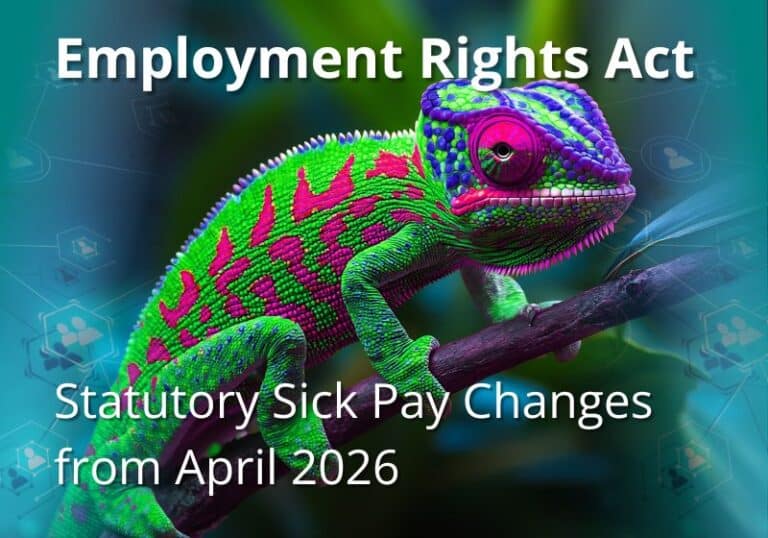Handling Dishonesty in the Workplace

As employers, we’d all like to believe our teams are full of honest, well-intentioned people — and for the most part, they are. But every so often, something doesn’t quite add up. A complaint that feels off. A CV that seems a bit too polished. A staff member caught in a cover-up. And when that happens, it can shake your confidence, your culture, and your sense of who to trust.
Dishonesty in the workplace comes in many forms — some more serious than others — but all can be deeply disruptive if not handled correctly. It’s natural to feel frustrated, disappointed, or even angry when you realise someone might not be telling the truth. But how you respond as an employer is just as important as the dishonesty itself.
Let’s take a look at a few common scenarios and how to handle them calmly and professionally.
False Allegations
Grievances are part of everyday people management. Often, they arise from misunderstandings or different interpretations of events. But sometimes, you get that feeling in your gut that something’s not quite right — the complaint feels engineered, maybe even malicious.
It’s tempting to jump in and call it out. But doing so too soon could backfire. The employee may double down, accuse you of bias, or throw in a counter-claim — and suddenly things escalate.
The best approach? Take a breath and follow your process. Appoint a neutral person to investigate. Treat the complaint seriously and gather evidence from both sides. Ask for proof, take signed notes, and look at the wider context — is there history between the individuals? Any other tensions brewing?
If it turns out the complaint was made in bad faith, then yes — that’s potentially a disciplinary matter. But by going through the proper steps, you’ll be in a far stronger position to act (and defend your decision if challenged).
Lying on a CV
It still surprises us how often this one crops up — from exaggerated job titles to made-up qualifications. Sometimes it’s harmless embellishment, but occasionally, it’s a deliberate attempt to deceive.
If you discover a lie before someone starts, you can usually withdraw the offer (especially if it was conditional). But if they’ve already joined the business, it’s more complex.
You’ll need to investigate like any other disciplinary matter. The level of response should depend on the seriousness of the lie — a fake degree for a regulated role is a much bigger deal than a stretched job title from ten years ago.
The key here is to keep your recruitment processes tight. Check qualifications. Clarify the importance of honesty up front. And use the probation period wisely to assess whether someone truly has the skills they claimed.
Defamatory Comments and Gossip
We’ve all seen it — the offhand remark, the snide comment, or the full-blown character assassination disguised as ‘banter’. Sometimes it’s online, sometimes it’s whispered across desks. Either way, it can cause real harm.
Whether the target is another employee, a manager, or the business itself, false statements that damage reputations aren’t just toxic — they can be legally risky too.
Make sure your policies around bullying, harassment, social media, and communication are clear. Train your team (and especially your managers) to understand the line between healthy feedback and damaging gossip.
If something defamatory is said, act quickly but fairly. Remove harmful content if it’s online. Investigate and respond through the correct process — again, it’s about being measured and evidence-based, not reactive.
The More Hidden Lies: Cover-ups and General Dishonesty
Some lies are less obvious but just as damaging. Like the employee who covers up a mistake and hopes no one notices. Or the one who manipulates a bonus scheme. Or the one who invents a personal crisis to avoid consequences.
These situations are hard — not just because of the act itself, but because of how personal it can feel. As an employer, you often put trust in your people. When that’s broken, it hurts.
But this is where strong leadership shows. As hard as it is, avoid a knee-jerk reaction. Stick to your disciplinary procedure. Investigate. Listen. Gather facts. Give the employee a chance to explain. Sometimes there are underlying issues like stress, fear, or personal problems that led to the dishonesty. That doesn’t excuse the behaviour, but it can help shape your response.
If the dishonesty was deliberate and serious, it may well be grounds for dismissal. But having followed a fair process, you’ll know your decision is sound — and so will your team.
Final Thoughts
Dishonesty chips away at the foundations of a healthy workplace. It erodes trust, breeds resentment, and makes you second-guess your instincts. But it’s also part of the messy reality of managing people.
When it shows up — whether as a lie, a cover-up, or a malicious complaint — the best thing you can do is stay calm, stay fair, and stick to the process. You don’t have to ignore it. But you also don’t have to let it throw you off course.
And remember — you’re not alone in dealing with it. Whether it’s advice on how to investigate, support with a disciplinary, or just a sounding board when things feel overwhelming, we’re here to help.
Angela Clay
A qualified employment law solicitor and our managing director, Angela has unparalleled legal expertise and decades of experience and knowledge to draw from. She’s a passionate speaker and writer that loves to keep employers updated with upcoming changes to legislation, and is a regular guest speaker on BBC Leicester Radio.




